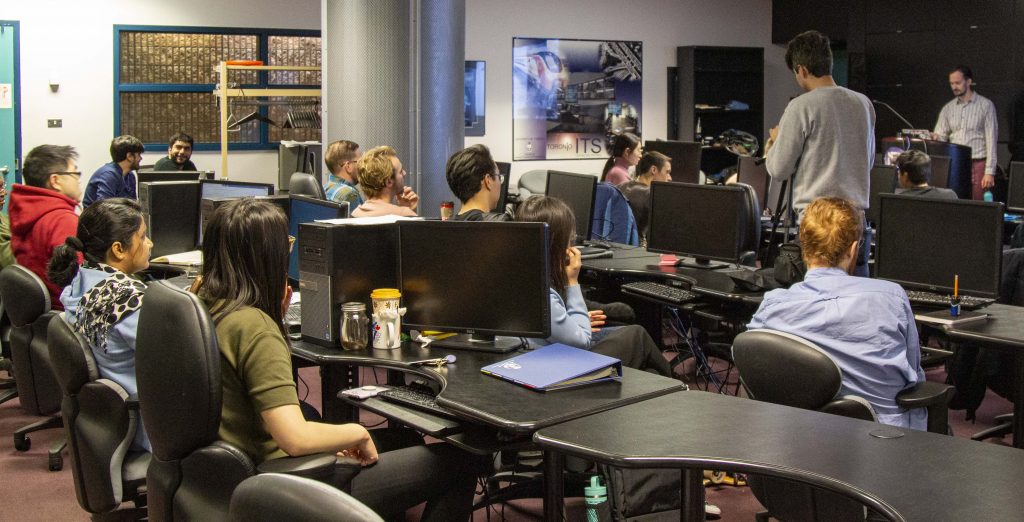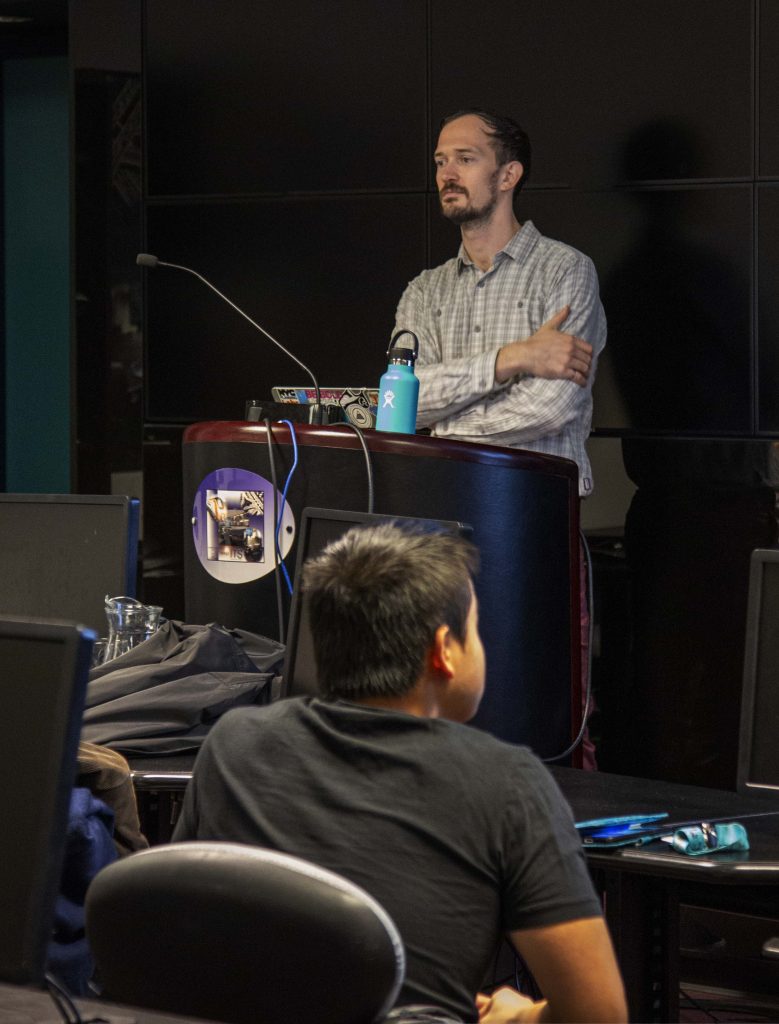
Uber, Lyft and other ride-hailing companies have been changing marketplaces in cities all over the world. The City of Toronto’s Big Data Innovation Team is examining the impacts of private transportation companies in Toronto.
Raphael Dumas, Project Lead of the City of Toronto’s Big Data Innovation team, gave a presentation about their findings on UT-ITE’s seminar series on October 25th with “The Review of transportation impacts of vehicle-for-hire.”
The project “Transportation impacts of vehicle-for-hire” is a partnership between Big Data Innovation team and University of Toronto students and faculty, aiming to assess and measure private transportation companies, changes in travel patterns and impacts on travel demand choices.
The project gave some interesting results:
- Friday and Saturday nights experience heaviest ridership
- Suburban trips are more commuter-based
- Most pickups occur in the Chinatown neighborhood
Raphael also suggested some potential research questions that U of T students could explore:
- Where do trips come from; what are the mode choice impacts?
- What is the service quality of transit and PTC trips?
- Could increased PTC pickups affect TTC shuttle bus operations?

The seminar ended with an interactive question and answer session with the audience.
The Big Data Innovation Team, in partnership with Municipal Licensing and Standards, prepared an analysis of the impacts of Vehicles for Hire and Private Transportation Companies on the City of Toronto’s Transportation Network including on congestion, equity, transit, and curb utilization. This talk will discuss the methods used in the analysis and the results, as well as the outcomes following the presentation of these analyses to Toronto City Council.
Raphael Dumas did his undergrad at McGill in Civil Engineering before doing a double degree at MIT, completing a Master of City Planning and a Master of Science in Transportation in 2015. During his three years there he did his thesis research in the MIT Transit Lab for the MBTA, Boston’s Transit Authority. He merged Automated Fare Collection (AFC) data with Automatic Vehicle Location (AVL) and train tracking data to infer origins, destinations, and journeys. With this data he analyzed differences between commute travel times for different demographic areas, the subject of this talk. He is now Research Analyst with the Transportation Services Big Data Innovation Team at City of Toronto, where he has been collecting and centralizing emerging and existing transportation data sets to improve the user experience on the city’s streets and highways.
This seminar was presented by the University of Toronto Institute of Transportation Engineers (ITE) Student Chapter.
More by Raphael Dumas:
- How the City of Toronto Used Shared Streets’ PUDO Data to Examine Curbside Impacts by Raphael Dumas, medium.com, September 10, 2019
- Previous UT-ITE seminar, “New Methods of Analyzing Transportation Equity with Big Data” October 20, 2018.

